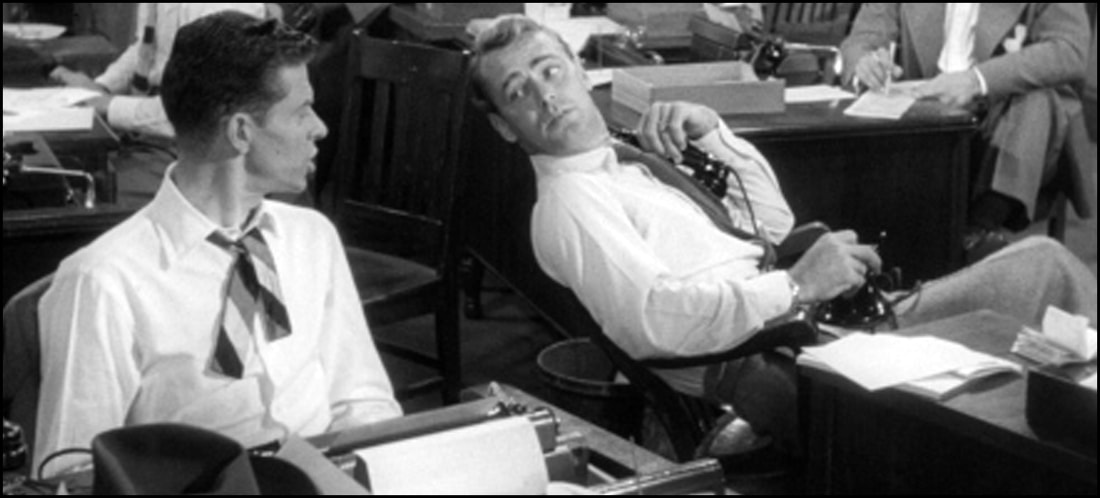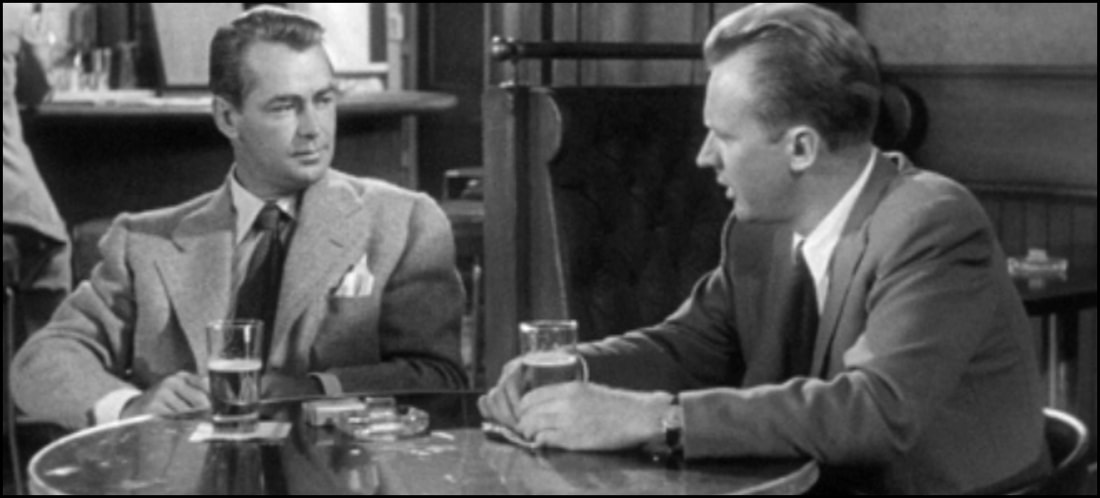Today’s distraction: 1949’s Chicago Deadline exists as a reasonably well-regarded Noir – not all that dissimilar from 1944’s superior Laura – from the folks at Paramount Pictures.
The source material for the film was a novel – “One Woman” – penned by Mr. Tiffany Thayer, a talented fellow whose resume shows not only writing and acting but as well he served as a founding member of the Fortean Society. (For those unaware, Charles Fort was an author and researcher who spent a good portion of his life investigating paranormal and the supernatural.) IMDB.com reports that several of Thayer’s novels were adapted for the silver screen, a fact that indicates he definitely had a knack for weaving yarns that met with Hollywood interest and approval. Screenwriter Warren Duff (1933’s Deluge, 1938’s Angels With Dirty Faces, The Girl From U.N.C.L.E., and The Invaders) adapted the novel for director Lewis Allen, a man known for such other entries as The Unseen (1945), Suddenly (1954), and some episodes of various television shows.
As for the onscreen talent? Chicago Deadline starred Alan Ladd, Donna Reed, June Havoc, Irene Hervey, and Arthur Kennedy in prominent roles exploring the tale of a crack Chicago reporter chasing down leads from an address book of Rosita Jean d’Ur, a beautiful young woman who turns up dead in a boarding house. The plot winds up being perhaps a bit more labyrinthian than many expected, and I’ll concede that – as older flicks go – this one requires a bit closer attention in the second half when some of the plot threads get wound a bit more tightly than probably expected.
As per my usual format, the film’s synopsis appears below. My two cents on its construction follow.
(NOTE: The following review will contain minor spoilers necessary solely for the discussion of plot and/or characters. If you’re the type of reader who prefers a review entirely spoiler-free, then I’d encourage you to skip down to the last few paragraphs for the final assessment. If, however, you’re accepting of a few modest hints at ‘things to come,’ then read on …)
From the film’s IMDB.com page citation:
“On Chicago’s South Side, reporter Ed Adams finds the body of a dead girl. Her address book leads to a host of names of men frightened by her death but claiming to never have known her. Adams comes to know quite a lot, dangerously so.”
Well … if I’m being particularly blunt, then I think all I’d really have to say about Chicago Deadline is that Alan Ladd fans have one solid reason to celebrate the film’s inclusion as part of Kino Lorber’s Film Noir: The Dark Side Of Cinema Collection, Volume XVI. While I found it respectably interesting, the story of one reporter’s crusade to get to the bottom of a death he basically stumbles upon by being in the right place at the right time is otherwise bland. It essentially weaves flashbacks of the fallen woman’s life into the fabric of big city politics; though Ladd’s efforts remain the crux of the narrative, I just didn’t find much of it riveting, certainly not nearly as much as I have territory covered in similar noirs.
Still, Deadline went to great lengths to show the amount of shoe leather reporters would go in the pursuit of a lead. The first half of the flick rather effectively shows how reporters get good at their game, even if that means absconding evidence from a crime scene that otherwise would’ve likely been filed away in some cardboard box. Driven to get to the bottom of a hunch may not work for you and me out here in Realityville, but this is the kind of set-up that drives a great many investigative features. On that level, the picture works just fine; I’d only caution the audience that you’ll have to follow what develops closely in order to keep up with Adams, and even then you might be disappointed with how obviously it all wraps up in the finale.
To the film’s credit, Deadline enjoyed a 1950 ‘Best Motion Picture’ nomination from the Edgar Allan Poe Awards. Alas, the film lost out in final estimation to The Window … but, hey, as they say, it’s an honor to just be nominated, am I right?
Deadline Chicago (1949) was produced by Paramount Pictures. DVD distribution (for this particular release) has been coordinated by the fine folks at Kino Lorber. As for the technical specifications? While I’m no trained video expert, I found the sights-and-sounds to this Blu-ray release to be quite good from start-to-finish. Lastly, if you’re looking for special features? The disc boasts a commentary by film historian Alan K. Rode along with the theatrical trailer to whet your whistle.
Alas, only mildly recommended.
Much to my surprise, Chicago Deadline (1949) wound up being my least favorite of this all-new Kino Lorber noir set. For some reason, I thought that Ladd’s inclusion alone meant that I was in for something special. While his work here was good – a bit too theatrical in some spots, especially considering he was little more than a big city reporter – it just wasn’t enough to elevate this yarn to the point of being all that memorable. Sometimes, character motivations mean more than mere characters; and I ended this diversion feeling as if I didn’t learn much about the folks met along the way. That spoiled the deal for me, so it’s a hard one to recommend with any degree of enthusiasm.
In the interests of fairness, I’m pleased to disclose that the fine folks at Kino Lorber provided me with a complimentary Blu-ray of Chicago Deadline (1949) – as part of their Film Noir: The Dark Side Of Cinema Collection, Volume XVI – by request for the expressed purpose of completing this review. Their contribution to me in no way, shape, or form influenced my opinion of it.
-- EZ



 RSS Feed
RSS Feed